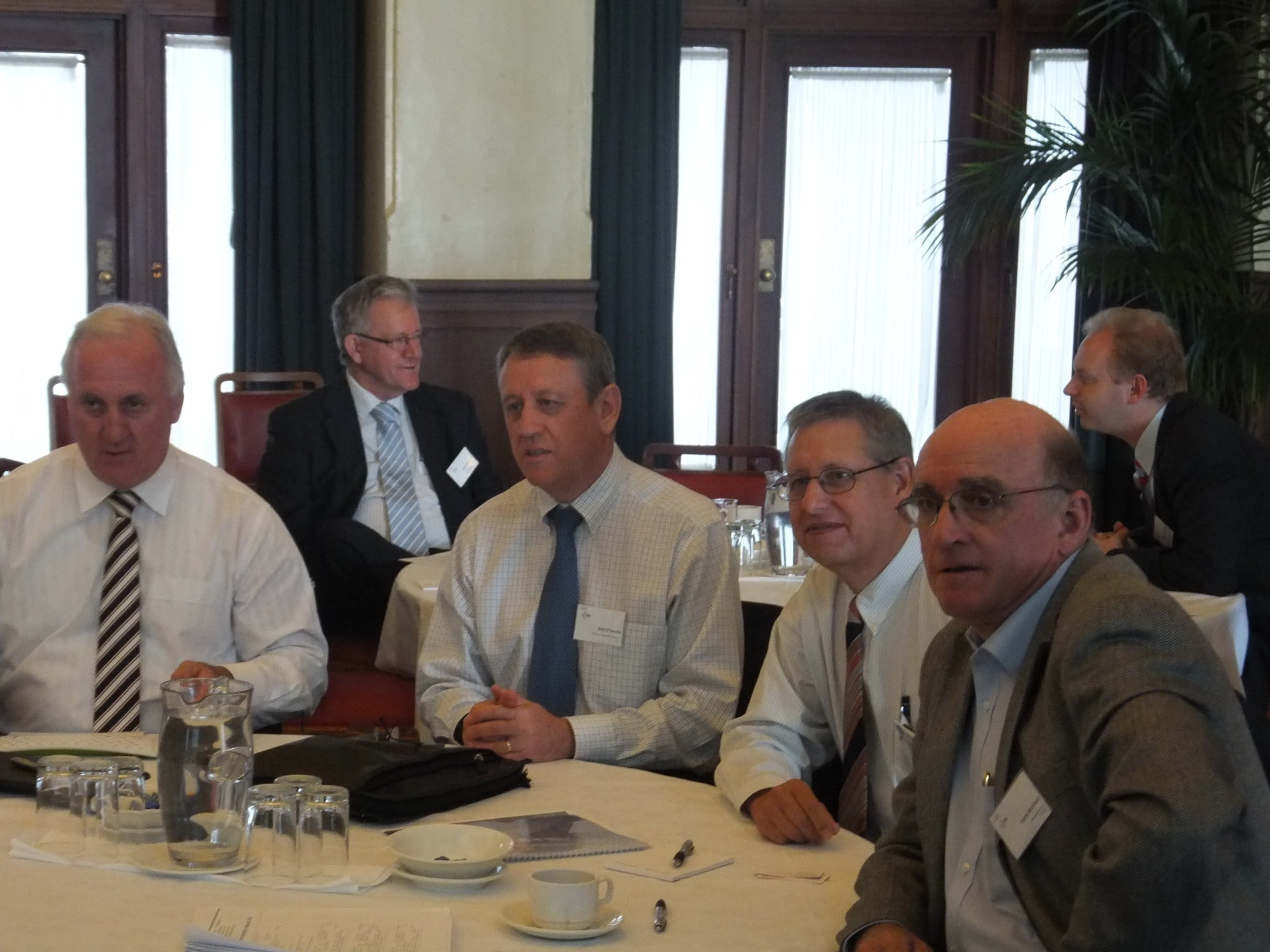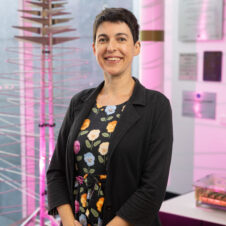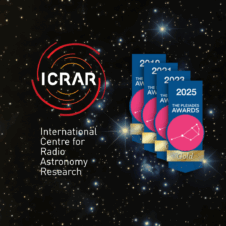ICRAR/Curtin PhD Student, Phil Crosby, joined around 40 invited complex project experts from across the spectrum of Government and the private sector, including notable aerospace firms such as BAE Systems and Thales. The challenging nature of the discussion was introduced by (Australian) David Pitchford, Executive Director Major Projects Authority U.K, and Head of Profession for Major Projects Delivery Cabinet Office, U.K. He described the UK response to continued failure in large complex projects, including the establishment of a Major Projects Management Academy to build capability.

Phil Crosby (second from right) participates in ICCPM Major Complex projects Roundtable event – Canberra.
Using interactive technology, the Roundtable groups explored the nature of complexity, and turned their minds to the seemingly intractable problems of major technical projects. The final activity was for each table to devise 10 fundamental principles for guidance when embarking on a truly complex projects, and several novel thoughts emerged. Drawing on deep experience with Defence Materiel and Boeing, Kim Gilles, Vice President Boeing Australia closed by emphasising lessons learned, the driving schedule of big technology projects, and setting up projects to succeed. The Roundtable Series will continue with an event at Cape Canaveral in May, in collaboration with NASA, a European event to take place in August in collaboration with Skema University, France, and a UK event to be held later in the year. Phil has joined the Editorial Board that will compile a findings paper of the entire series before the end of 2012.
Phil Crosby’s recently submitted PhD thesis, “Predictive Indicators of Success in High-Tech Projects – Application to the SKA Initiative”, uses a mix of empirical (case study based) research, and a meta-study of the literature, to devise success drivers shown to improve outcomes for science/engineering mega-projects. An additional output is a practical checklist tool for large, high-tech project practitioners. The findings from his research have direct applicability to the Square Kilometre Array (SKA) radio telescope project to be built in either Australia/New Zealand or Southern Africa, and now commencing preconstruction.

